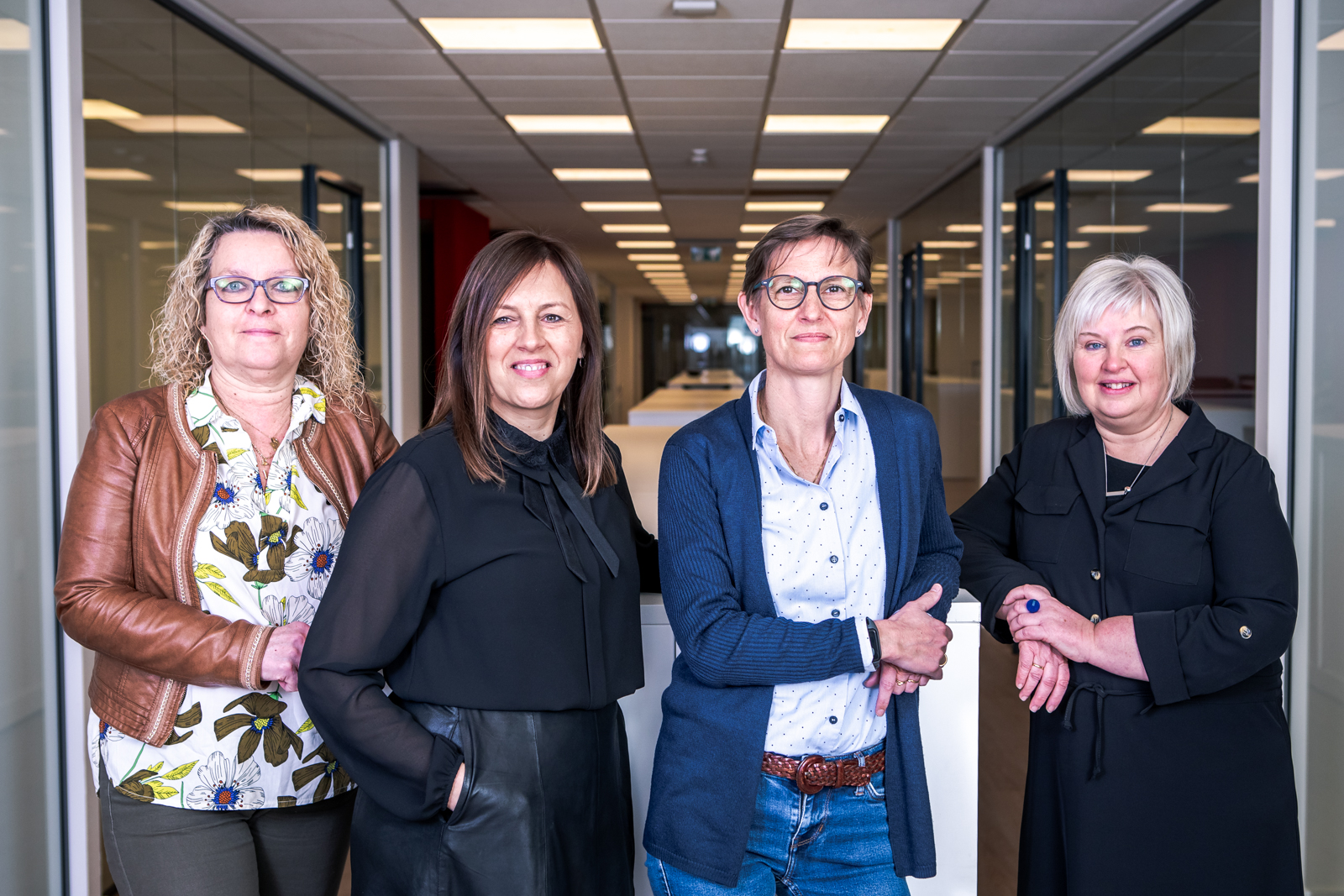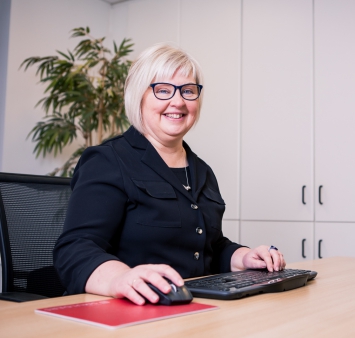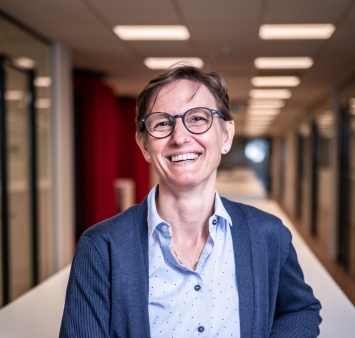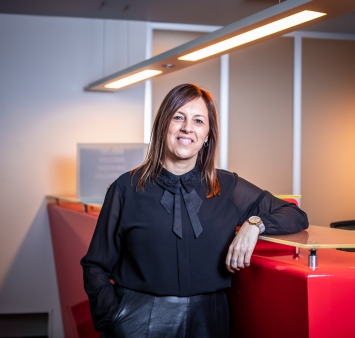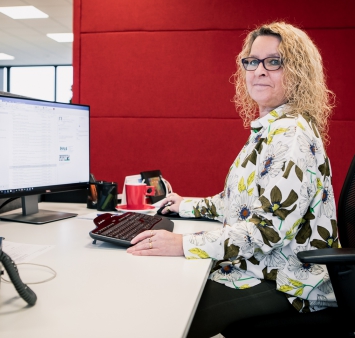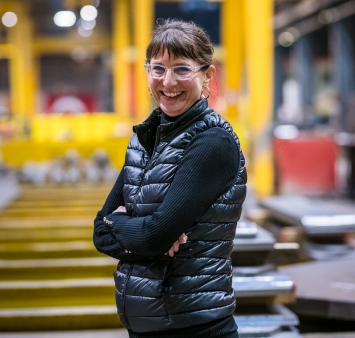blog
A career with a steel construction company like Smulders may not be the most obvious professional choice for a woman. That's why we'd like to put a few Iron Ladies in the spotlight today; four women with about 30 years on the counter at subsidiary Iemants. Everything that has happened to this company in the past 30 years, these ladies experienced from the front row. Meet Martine Janssen, Leen De Clerck, Patricia Nuyts and Martine Wouters.
For better and for worse
Three decades with the same employer: in terms of loyalty, that can count. Never considered other horizons?
Patricia: "Hardly, actually. We've of course experienced all the ups and downs of the company here and like everyone else I've evaluated my chances in times of crisis, but in the end, I've always stayed on board. I like the job too much, we have plenty of flexibility and many fringe benefits. And it's close to home. All irreplaceable assets.”
Martine J.: "My job here is characterized by a large dose of variation. It must be said: I have a good boss. (laughs) What's more, the sector really appeals to me. Among other things, it's about spectacular architecture and the creation of special constructions. In combination with flexibility and great colleagues, this became a place for me to cherish".
Martine W.: "I've been away for a while, but it's significant that I'm back here now. As a secretary, the flexibility is less important, but I can still take hours off when needed".
Leen: "You will certainly be listened to here. Internally you can go in many directions if you motivate this well. That says something about the appreciation and trust you get here."
What do you think are the biggest assets of this company?
Patricia: "What strikes me most is that the company has always moved with the times, even today. At all levels, they are open to any possible change. You can feel that in the way they deal with personnel."
Leen: "We have of course experienced this evolution. Requesting 5 or 6 weeks parental leave used to be bold, now that's normal. A good work/life balance is now a matter of course".
Martine J.: "The first word that comes to mind as an asset is renewal. The projects are becoming more and more exciting and stimulating. With the sharp increase in scale, it is no longer possible to get to know everyone in the company well. This inevitably creates some distance between departments, but the company is open to everything, including initiatives to connect the staff more. Nevertheless, team building events are now split up, but that's inevitable".
Leen: "This openness to change makes that working here, even as a woman, has changed resolutely and for the better over the last 30 years. Yet you can't make a value judgment about it; everything fits in its spirit of the times. It used to be fun too."
Women of the (male) world
What immediately strikes me is that these ladies take equality for granted. This is how it is (fortunately) experienced...
The steel industry is still seen as a male bastion: Do you notice that as a woman?
Leen: "I don't think we have any concrete disadvantages here as women. That wouldn't be ok either. A contemporary company has to invest in all its people. That is also a consequence of the relative scarcity on the labour market; good people want to keep you. If there were a concrete difference in how women are approached, we wouldn't continue to work here for 30 years".
Martine J.: "You can tell from the figures that this sector mainly appeals to men. Across the entire organization we are 117 women out of a total of 1018 employees. Of course, that's not a balance. In percentage terms, however, our share has increased enormously compared to the early days. At this rate, we will come closer and closer to equilibrium anyway".
Leen: "It may also be the case that certain sectors appeal more to one gender than others. In a sewing workshop you will also find fewer men. I do think that gender used to play a role in job applications, the zeitgeist again, but in the meantime, it makes absolutely no difference anymore".
Martine W.: "In recent years, we have also seen women gaining more and more access to all layers of this company: from operational positions to engineers. Although the physical, operational level will certainly continue to be dominated by men, but that just makes sense".
Any expert advice for 'fellow sufferers'; women in a men's sector?
Martine J.: "Simple: they have to stand their ground. Equality is there and hierarchy only exists on paper. We speak to everyone, from base to top, with the first name (that has never been different). So you are in control. You have to earn the trust that applies to everyone. If you do your job well, you get trust. That has nothing to do with being a woman."
Patricia: "I do think things have changed for the better. A boss used to be more of a boss. You just shouldn't let them intimidate you."
The evolution of Smulders
How did you see the company grow/change?
Patricia: "Everything goes faster. You can see that, for example, in the pace of recruitment. The building here in Arendonk also shows this rapid growth curve. In a few decades we have gone from one to four floors. Attention to safety has also grown strongly. That attention has always been there, but now it's omnipresent".
Leen: "The nature of the projects has changed considerably. They used to be mainly halls and bridges, now they are offshore projects, complex and large constructions. That makes the work more exciting and socially relevant. Of course, as an accountant you don't have to deal with that directly, we don't see the full scope, but it gives it a different élan. Not that it was ever 'normal' here (laughs): no company is ever just ordinary".
Martine J.: "When you get somewhere or receive customers here, it does give you some pride. You can present an impressive record of achievements. People are usually quite impressed. That's nice too, of course."
